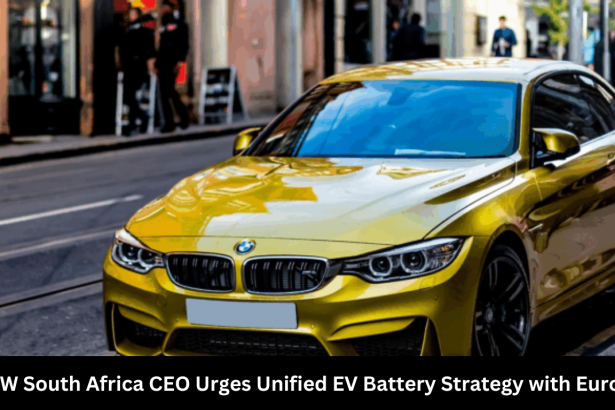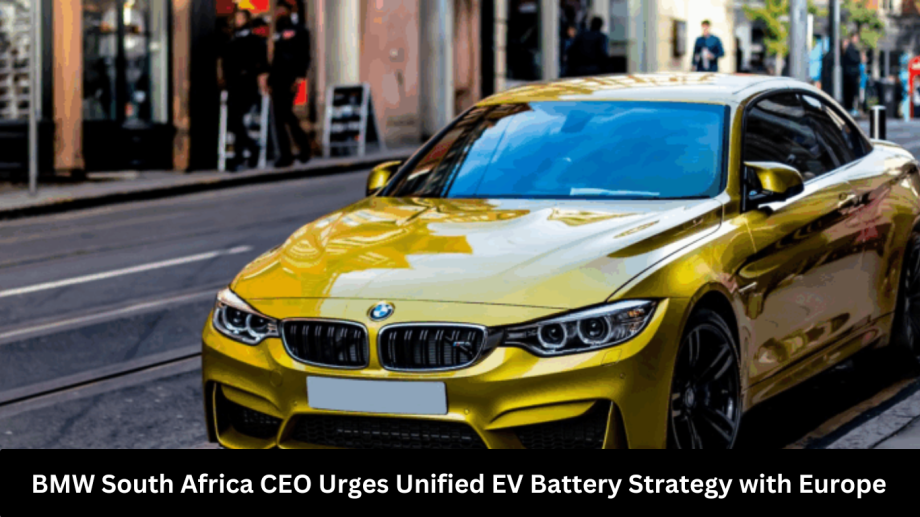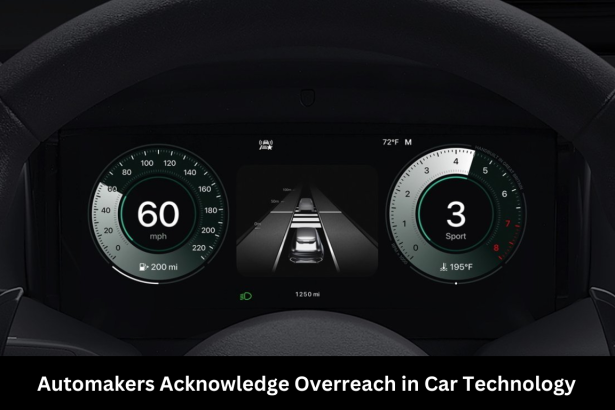As the global automotive industry accelerates its transition to electric vehicles (EVs), regional collaboration is becoming increasingly critical.
- The Global Shift Toward EVs
- BMW’s Electric Vision
- South Africa’s Role in the EV Battery Supply Chain
- Why Europe Needs Africa – The Battery Mineral Imperative
- The Case for a Joint EV Battery Strategy
- 1. Co-Investment in Battery Value Chains
- 2. Technology and Skills Transfer
- 3. Trade and Regulatory Alignment
- Challenges to Overcome
- Opportunities for South Africa and the Continent
- BMW South Africa’s Position and Strategy
- Policy and Trade Implications
- Frequently Asked Question
- What did the BMW South Africa CEO propose regarding EV batteries?
- Why is a unified strategy with Europe important?
- How would South Africa benefit from this collaboration?
- What is BMW currently doing to support EV growth in South Africa?
- What challenges could affect this joint strategy?
- How can Europe contribute to this partnership?
- What does this mean for the future of EVs in Africa?
- Conclusion
In a pivotal call to action, the CEO of BMW South Africa, Peter van Binsbergen, has urged for a unified EV battery strategy between South Africa and Europe, emphasizing the need for alignment in supply chains, resource development, and technological innovation.
This initiative marks a significant step toward integrating South Africa into the global EV ecosystem, leveraging its vast mineral wealth and strategic geographic position.
More Read: Peloton Updates Equipment, Unveils Commercial Division, and Increases Prices Ahead of Holiday Season
The Global Shift Toward EVs
The automotive industry is undergoing a once-in-a-century transformation. With climate concerns, regulatory pressures, and consumer demand driving the shift, EV adoption is rapidly growing.
-
Global EV sales surpassed 10 million units in 2023, with projections estimating 14 million by the end of 2025.
-
Governments across Europe have implemented zero-emission mandates and are banning new internal combustion engine (ICE) vehicle sales by 2035.
This seismic shift has created a massive demand for lithium-ion batteries, the heart of every EV. However, the supply chain remains complex, fragmented, and geopolitically sensitive.
BMW’s Electric Vision
BMW, a pioneer in sustainable mobility, is committed to electrifying its portfolio. Globally, BMW aims for:
-
50% of total vehicle sales to be electric by 2030
-
Investment of €30 billion in R&D and battery technologies
-
A move toward sustainable and ethical sourcing of raw materials
BMW South Africa plays a vital role in the company’s global production network.
The Rosslyn plant in Pretoria, operational since 1973, is BMW’s first manufacturing facility outside Germany and a major contributor to both local employment and exports.
The shift to EVs requires adapting this facility and supply network to the electric era — hence the CEO’s call for strategic alignment with Europe.
South Africa’s Role in the EV Battery Supply Chain
South Africa is well-positioned to contribute to the global EV value chain, particularly in the upstream and midstream segments:
1. Abundant Mineral Resources
South Africa is rich in key battery materials:
-
Manganese – 75% of the world’s reserves
-
Nickel – Used in high-energy-density cathodes
-
Platinum group metals (PGMs) – Important for fuel cells and potential solid-state batteries
2. Industrial Capacity
With an established automotive manufacturing base and logistics infrastructure, South Africa can:
-
Process battery minerals domestically
-
Export components or refined materials to Europe
-
Transition existing auto plants for EV assembly
Why Europe Needs Africa – The Battery Mineral Imperative
Europe is leading in EV adoption but is resource-constrained. According to the European Battery Alliance (EBA):
-
Europe will need 18 times more lithium and 5 times more cobalt by 2030
-
Currently imports over 80% of battery raw materials from non-EU countries
-
Faces supply chain vulnerabilities due to overreliance on China and political instability in other supplier regions
A strategic partnership with Africa — and particularly mineral-rich countries like South Africa — is essential for Europe’s battery autonomy.
The Case for a Joint EV Battery Strategy
Peter van Binsbergen’s call reflects a broader industry recognition: No region can build a successful EV ecosystem alone. The proposed unified strategy could include:
1. Co-Investment in Battery Value Chains
-
Joint ventures between European and African firms in mining, refining, and cell manufacturing
-
Development of Gigafactories in South Africa for local and export markets
2. Technology and Skills Transfer
-
Training programs to upskill African workers in battery tech
-
Collaboration between EU and African universities for R&D
3. Trade and Regulatory Alignment
-
Harmonized standards for battery quality, recycling, and ESG compliance
-
Streamlined export-import procedures for battery materials
Challenges to Overcome
Despite the immense potential, several hurdles must be addressed:
1. Infrastructure Gaps
South Africa faces electricity supply issues and lacks large-scale EV charging infrastructure. Investment in renewable energy and grid stability is critical.
2. Policy Ambiguity
There is no clear national EV policy or roadmap in South Africa. The Automotive Production and Development Programme (APDP) needs to evolve to incentivize EV production.
3. Funding and Risk Aversion
Large-scale battery production requires billions in upfront investment. African nations often face challenges accessing green financing and de-risking instruments.
Opportunities for South Africa and the Continent
A unified strategy with Europe opens significant economic and environmental benefits for South Africa:
1. Job Creation and Skills Development
-
Manufacturing batteries and EV components locally could create thousands of jobs.
-
Youth training in green technology can empower future generations.
2. Export Revenue Growth
-
Value-added exports (e.g., battery precursors, cathode materials) fetch higher margins than raw minerals.
-
Africa can become a net exporter of battery solutions, not just raw inputs.
3. Climate Leadership
-
Local EV production reduces carbon emissions.
-
Cleaner transport helps South Africa meet its Nationally Determined Contributions (NDCs) under the Paris Agreement.
BMW South Africa’s Position and Strategy
BMW is already laying the foundation for this vision:
-
Investing R4.2 billion in the Rosslyn plant to begin producing BMW X3 plug-in hybrid electric vehicles (PHEVs) by 2026.
-
Exploring the localization of battery pack assembly in the long term.
-
Engaging with government, suppliers, and educational institutions to prepare the ecosystem for EVs.
Van Binsbergen believes that collaboration, not isolation, is key:
“We must align our goals with Europe and act with urgency. This is not just about technology – it’s about building an African EV future that is globally integrated and locally empowered.”
Policy and Trade Implications
To make a joint EV battery strategy work, policy alignment is crucial:
South Africa Needs:
-
A National EV Policy with incentives for manufacturing and adoption
-
Battery minerals beneficiation policies that encourage local value addition
-
Green industrial financing mechanisms
Europe Should:
-
Provide technical support and investment guarantees for African battery projects
-
Include African nations in the EU Critical Raw Materials Act frameworks
-
Foster bilateral trade agreements that ease movement of battery materials and technology
Frequently Asked Question
What did the BMW South Africa CEO propose regarding EV batteries?
Why is a unified strategy with Europe important?
How would South Africa benefit from this collaboration?
- Job creation in mining, refining, and battery manufacturing
- Industrial growth by moving up the value chain
- Export opportunities for battery materials and components
- Technology transfer and workforce upskilling
What is BMW currently doing to support EV growth in South Africa?
- Investing R4.2 billion in its Rosslyn plant to start producing plug-in hybrid EVs by 2026
- Exploring local battery pack assembly in the future
- Working with government and industry players to develop EV infrastructure and policy support
What challenges could affect this joint strategy?
- Lack of national EV policy in South Africa
- Power supply issues impacting manufacturing stability
- Limited charging infrastructure
- Funding gaps for large-scale battery projects
How can Europe contribute to this partnership?
- Invest in African battery supply chains
- Offer technical expertise and funding guarantees
- Include African nations in its Critical Raw Materials strategy
- Promote fair trade policies that support value addition in Africa
What does this mean for the future of EVs in Africa?
This call marks a pivotal opportunity for Africa to become an active player in the EV revolution, not just a raw materials supplier. If partnerships like the one proposed are realized, Africa could develop its own EV ecosystems, boost clean mobility, and contribute meaningfully to global climate goals.
Conclusion
The BMW South Africa CEO’s call for a unified EV battery strategy with Europe is both visionary and pragmatic. It recognizes the interdependence between resource-rich Africa and technology-driven Europe in the race toward clean mobility.
South Africa is not just a passive player — it is a potential powerhouse in the global EV revolution. But realizing this potential requires bold policies, coordinated investment, and cross-border cooperation.








